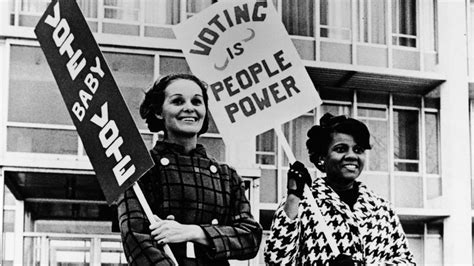Franchise/Suffrage: Essential Concepts in AP Gov Definition Unit 5

The concepts of franchise and suffrage lie at the heart of democratic governance, shaping the distribution of political power and the inclusiveness of our political systems. In this article, we will explore the definitions and historical evolution of these crucial terms within the context of AP Government Definition Unit 5.
Definition: The franchise refers to the legal right of citizens to participate in elections and express their collective voice in shaping the composition of government.
Historical Evolution:
- Ancient Greece: Limited suffrage to male citizens of property
- European Middle Ages: Universal male suffrage in some city-states
- American Revolution: Expanded suffrage to white males
- 15th Amendment (1870): Granted suffrage to African American men
- 19th Amendment (1920): Granted universal suffrage to women
Definition: Suffrage is the actual act of voting, utilizing the right provided by the franchise.
Historical Evolution:
- Early voting methods: Open voting, secret ballot
- 26th Amendment (1971): Lowered voting age to 18
- Motor Voter Act (1993): Simplified voter registration
- Voting Rights Act of 1965: Enforced equal access to suffrage
- Democratic Legitimacy: Provides a foundation for representative government, where leaders derive their authority from the consent of the governed.
- Political Equality: Ensures that all eligible citizens have an equal say in shaping public affairs, regardless of gender, race, or socioeconomic status.
- Accountability: Empowers citizens to hold elected officials accountable for their actions and policies.
Challenges:
- Voter turnout: Many eligible citizens do not exercise their franchise.
- Gerrymandering: Manipulation of voting districts to favor a particular party.
- Voter suppression: Efforts to restrict access to suffrage for certain groups.
Reforms:
- Automatic voter registration
- Early voting
- Mail-in voting
- Independent redistricting commissions
Global Comparisons:
- Universal suffrage is a generally accepted principle in most democratic countries.
- However, voting age, registration requirements, and voter turnout vary widely.
Historical Comparisons:
- Historical expansions of suffrage have often been driven by social movements and constitutional amendments.
- The fight for suffrage has been particularly significant for marginalized groups, such as women and people of color.
Benefits:
- Increased political participation
- Greater representation of diverse perspectives
- Reduced corruption and increased accountability
Consequences:
- Potential for majority rule tyranny
- Difficulty in balancing the rights of the majority with the rights of minorities
Franchise and suffrage are fundamental pillars of democratic governance, providing citizens with the opportunity to shape their political destiny and hold those in power accountable. By understanding their definitions, historical evolution, and ongoing challenges, we can continue to strive for an inclusive and equitable political system.
Table 1: Historical Expansions of Suffrage in the United States
| Amendment | Year | Group Granted Suffrage |
|---|---|---|
| 15th Amendment | 1870 | African American men |
| 19th Amendment | 1920 | Women |
| 26th Amendment | 1971 | 18-year-olds |
Table 2: International Voter Turnout Rates
| Country | Voter Turnout Rate (2019) |
|---|---|
| Australia | 92.1% |
| United States | 55.7% |
| United Kingdom | 67.3% |
| France | 77.8% |
| India | 67.1% |
Table 3: Challenges to Suffrage
| Challenge | Impact |
|---|---|
| Voter suppression | Restricts access to suffrage for certain groups |
| Gerrymandering | Manipulates electoral districts to favor a particular party |
| Low voter turnout | Reduces the legitimacy of democratic elections |
Table 4: Reforms to Promote Suffrage
| Reform | Benefits |
|---|---|
| Automatic voter registration | Simplifies voter registration and increases turnout |
| Early voting | Provides more flexible voting options and reduces lines on Election Day |
| Mail-in voting | Makes voting more convenient and accessible |
| Independent redistricting commissions | Helps ensure fair and impartial electoral districts |
